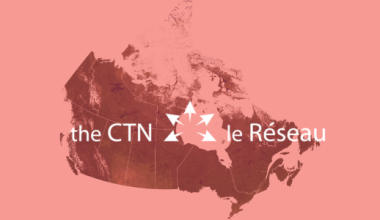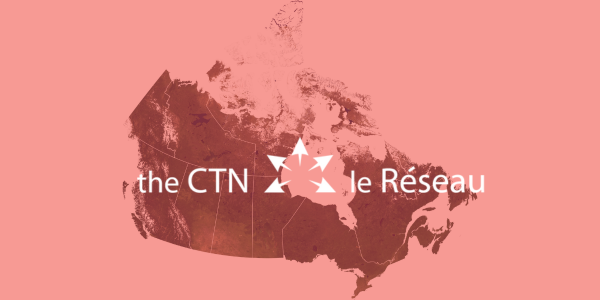The following is posted on behalf of Gilead Sciences Canada.
Gilead’s BRAVVO RFP program seeks to support research efforts with the potential to help improve long-term care and management for people with HIV.
Gilead supports the research efforts of academic institutions, clinical investigators, and research networks to help improve long-term care and management for people with HIV.
Bictegravir/emtricitabine/tenofovir alafenamide (B/F/TAF*) is a complete HIV-1 treatment for adults and children with HIV who weigh at least 55 pounds and are either new to HIV-1 treatment or replacing their current regimen. The single tablet regimen addresses the unmet needs of most treatment-naïve and virologically suppressed people with HIV and offers a high barrier to resistance and few interactions with other drugs. However, further scientific data are needed on B/F/TAF in the medical literature.
Gilead is making a specific request for research study proposals in the disease area of HIV. The BRAVVO RFP Program is in addition to Gilead’s existing Investigator Sponsored Research Program. Both programs support investigator-sponsored and collaborative research conducted by clinicians and researchers on Gilead’s marketed products and/or within therapeutic areas of interest to the company.
Through the BRAVVO RFP Program, Gilead will evaluate and potentially support programs which address the following topic areas:
1. Data on B/F/TAF in sub-populations of people with HIV
Examples of research questions could include but are not limited to:
- What is the effectiveness of B/F/TAF in populations disproportionally impacted by HIV facing barriers to access, adherence or quality of care?
- What are renal, metabolic, and hepatic outcomes in people using B/F/TAF with existing co-morbidities (e.g. chronic kidney disease, hypertension, diabetes, metabolic syndrome) compared to people with HIV using other ARVs and the general population?
- What are the clinical outcomes of switching to B/F/TAF from more complex regimens (e.g. continued viral suppression and patient-reported outcomes)?
2. Safety and efficacy of B/F/TAF in treatment-experienced people with HIV restarting ART
3. Engagement strategies or tactics utilizing B/F/TAF that improve HIV care and outcomes among people with HIV (especially those facing challenges or barriers to accessing HIV medical care, retention in care, re-engagement in care, and achievement and maintenance of viral suppression)
Examples of research questions could include but are not limited to:
- What are innovative approaches to the utilization of B/F/TAF to engage, re-engage and retain people with HIV in HIV care?
- What are barriers and strategies to improve long-term engagement in care?
- How do communities impacted by HIV define living with HIV successfully beyond viral suppression (e.g. access to simple treatment and person-centered care, living free of stigma, quality of life)?
- What are treatment satisfaction levels as reported by people with HIV, reasons for switching, etc., in those who switch to B/F/TAF from other regimens within different sub-populations (e.g. migrants communities, people with mental health challenges, people with unstable housing, people with substance use challenges)?
4. Effectiveness, safety and clinical outcomes of rapid start with B/F/TAF in late presenters in resource-limited settings and areas with high prevalence of tuberculosis and other opportunistic infections
Please discuss other research topics not listed above with your local Gilead Medical Scientist.
Application Criteria
We recommend that submitted proposals:
- Have clear scientific objectives based on scientific hypotheses
- Collect appropriate metrics using defined and specific data collection methods
- Have a plan to present results in scientific forums and to other organizations, and to publish results in peer reviewed journals
- Note potential scalability and sustainability of the program once funding is complete (when applicable)
- Highlight generalizability to other practice settings
- Study can be completed within 18-24 months after contract execution
Submission Deadlines and Application Process
Letter of Intent Submission Window
To apply for consideration for funding under the BRAVVO Program, you will need to submit a Letter of Intent (LOI) that is no longer than two pages, contains a concise overview of the proposed project and includes the total estimated budget.
- September 1, 2022: Submission window opens
- October 3, 2022 (23:59 PST): Submission window closes
LOIs must be submitted via the Gilead Optics online portal.
Questions about the RFP or the application process can be submitted to your local Gilead Medical Scientist or BRAVVO@gilead.com
A review of the LOIs will result in invitations for selected LOI applicants to submit a full application with detailed budget. Below are the timelines for full submissions.
- October 20, 2022: Notice of LOI outcome, with invitations for full application submission
- November 21, 2022 (23:59 PST): Deadline for receipt of full application
- Mid-December 2022: Notice of full application outcome
Applications must be completed in Gilead Optics following approval to submit.
Investigators who meet criteria for a standard Gilead ISR are encouraged to apply. There are no geographic limitations to applications.
Awards shall be for research purposes only. Requests that include routine medical care or other costs associated with routine medical care will not be considered.
Budget Considerations
Gilead plans to award a total of approximately $7,500,000 in funds for these research proposals, dependent upon availability of funds and receipt of meritorious applications. Gilead anticipates that 10 to 20 awards will be granted. Any proposal greater than $500,000 should be discussed with your Gilead Medical Scientist prior to submission.
Review Process
LOIs will be rigorously reviewed by a Gilead internal committee. Each LOI that meets program requirements and is complete, will be assigned to multiple primary and secondary reviewers. Each reviewer will review and score the LOI and will evaluate how well the proposal addresses the RFP, the potential impact of the study, the strength of the objectives/study design and sustainability/scalability of the methods under study. Scoring is based on the modified NIH Scoring Tool. High scoring LOIs will be discussed by a multidisciplinary committee. Investigators with the top LOI submissions will be offered the opportunity to submit a full proposal, which will be similarly reviewed.
No Guarantee of Funding
Gilead reserves the right to approve or decline any application at its sole discretion. Submission of an LOI or a full application does not guarantee funding.
No Inducement or Reward
Gilead approval of awards does not take into account the past, present, or future volume or value of any business or referrals between the parties. Awards are not being given, directly or indirectly, as an inducement or reward with respect to the past or potential future purchase, utilization, recommendation or formulary placement of any Gilead product. Furthermore, except for the use of the Gilead product in an approved award/research, the awardee is not required to purchase, order, recommend or prescribe to any patients any products manufactured by or available through Gilead.
*B/F/TAF refers to Gilead’s Biktarvy® (bictegravir 50 mg / emtricitabine 200 mg / tenofovir alafenamide 25 mg tablets).






